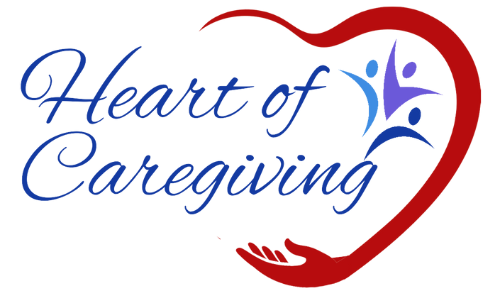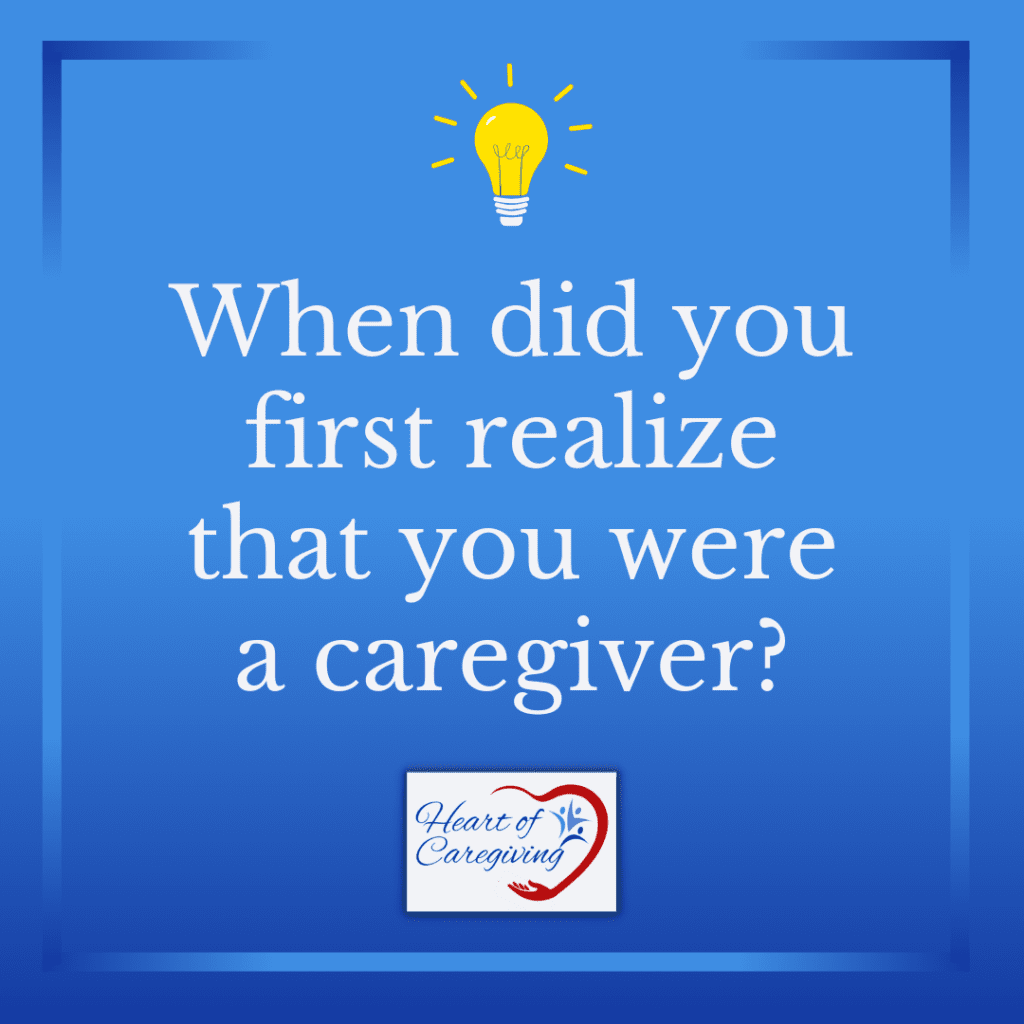It is understandable why we might resist the title or role of caregiver even when technically fulfilling caregiving responsibilities. Taking on the role of a caregiver often involves a significant shift in our identity. This change can be challenging to accept, especially if it clashes with our self-perception and personal goals. In addition, caregiving can evoke a range of emotions, including guilt, sadness, and frustration. Accepting the caregiver role may mean acknowledging and dealing with these complex emotions, which can be challenging. The emotional strain can catch us off guard, and dealing with our emotions also requires facing the fears that flow underneath. We may not want to face fear about how caregiving will impact our future, fear about the decline of our parent’s abilities and how this will impact our relationship, and fear about our own abilities and what will be required of us. We can go from struggle to strength when we embrace our identity as a caregiver.
Acknowledge the struggle
Just as our older family members may lose some of their independence, we may perceive our new responsibilities as losing personal freedom and independence. Balancing caregiving duties with personal pursuits can be a source of internal conflict, and the sudden onset of responsibilities can be overwhelming. Our lack of preparation and knowledge about caregiving may contribute to our difficulty accepting the role. Conflicts can surface in our other relationships as well. Siblings may disagree on the details of care. We can feel torn between spending time with our parent, whose needs are significant, and feeling we are neglecting a spouse or our children. If we haven’t accepted our role and responsibilities, we may not recognize the enormity of the undertaking and can feel shame for our inability to balance priorities.
Caregiving often comes with financial burdens, including the cost of medical care, medications, and potential adjustments to work schedules. This additional stress can make accepting the caregiver role more challenging. We may not want to mention our care responsibilities to our boss or colleagues for fear of judgment or repercussions. Also, our friends don’t understand our concerns unless they have cared for a family member, making us feel isolated. This lack of a support system can make accepting the caregiver role more difficult. In addition, the absence of understanding or assistance from others can contribute to a sense of being overwhelmed.
Acknowledge the benefits
Accepting the caregiver role and title is important for several reasons, as it can lead to more positive outcomes for both us as a caregiver and our family member receiving care. When we accept the caregiver title, we can communicate openly with others, demonstrate self-compassion, and access available resources.
Here are some additional reasons that underscore the importance of embracing the caregiver role:
Acceptance can come gradually
Even if we acknowledge that it is crucial to accept the caregiving role, it can still be challenging. It may help if we acknowledge that acceptance can come gradually. There are strategies to make this process and transition smoother. We can start by recognizing and validating our emotions, including any feelings of guilt, sadness, or uncertainty. It’s normal to experience a range of emotions when taking on the caregiver role. We can seek information and education to learn about the medical conditions or challenges our family member faces. Understanding our caregiving responsibilities and gaining the necessary skills can boost confidence and make the role feel more manageable.
We might join a caregiver support group, either online or in person, to share experiences and learn from others in similar situations. Building a support network can help us feel less alone and better equipped. We can also turn to family for support and have open and honest discussions about caregiving responsibilities. We can clearly communicate our needs, boundaries, and expectations, fostering a collaborative approach to caregiving. Additionally, technology can aid in caregiving, such as medication reminder apps, health monitoring devices, or communication tools. These tools can help streamline tasks and alleviate some of our caregiving burdens.
Prioritize well-being
Before communicating boundaries, we must consider our limits and set realistic expectations. It is essential to understand that we cannot do everything, and asking for help is okay. Establishing clear boundaries helps prevent burnout and maintain a healthy balance. A healthy balance includes prioritizing self-care to maintain our physical and emotional well-being. Self-care is essential for sustaining the caregiving journey, so we want to take breaks, engage in activities we enjoy, and make time for relaxation. Prioritizing our well-being is easier when we learn to delegate. We can identify tasks that others can assist with and be willing to let them go, lightening the caregiving load.
As care needs become more intense, we can consider arranging respite care. Having time away from caregiving responsibilities allows us to recharge and maintain a sense of balance so that we can continue to cultivate a positive mindset. When overwhelmed by the responsibilities, it can be challenging to focus on the aspects of caregiving that bring fulfillment and purpose and lead to personal growth.
Acceptance is a process; taking it one step at a time is okay. Be patient with yourself, and don’t hesitate to reach out for support when needed.
Get started
Embracing your identity as a caregiver is the first step in how to be proactive and prepare for a crisis. Sign up and receive the Prepare for a Crisis Action Plan. Take action to embrace the caregiver role and connect with resources, collect necessary documents and information, and find joy in your caregiving journey so that you maximize memories and minimize regret.
For more solutions for the common mistakes caregivers make, check out 21 Mistakes Caregivers Make & How to Avoid Them: Solutions and Strategies to Reduce Stress and Increase Happiness available on Amazon!
Advice offered is for general information only; please contact your healthcare team, legal or financial advisors to guide your particular situation.


